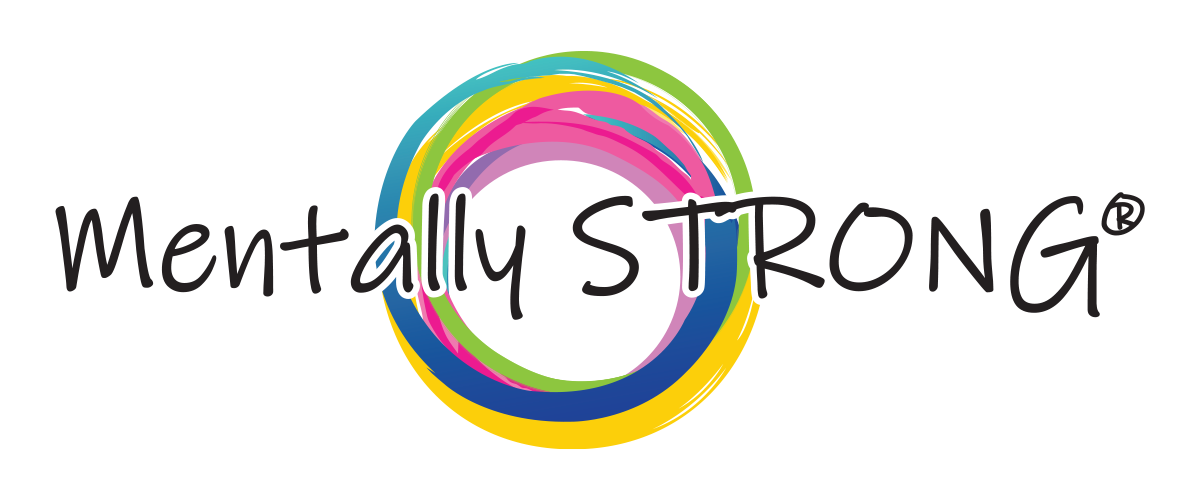You ever get into a spat with someone (maybe a friend, a partner, a family member) talk it out, tell yourself you’ve moved past it… but somehow, the sting sticks around?
Every time you see them, something sinks inside you. Every time they say something that brushes up against the old wound, you feel that little flare of anger and grief. It’s that quiet bitterness that says, “Yeah, I remember.”
And you try to fix it right? you keep giving yourself pep talks. And you want to fully believe that you’ve processed it, and that you’re “over” it. But if you’re being honest? You’re still carrying it and it’s still weighing you down.
That, my friend, is resentment – and it’s a frustrating burden to carry.
Today, I want to walk you through how to let go of resentment. Not because you have to forget what happened, not because you have to pretend it didn’t hurt, but because you deserve to be free of carrying it.
Let’s start where healing always starts: by calling it what it is.
First, Let’s Name It: What Is Resentment, Really?
If you’re out here thinking that resentment is just anger, then let’s gently reframe that. Because it isn’t just anger. It’s the part that stays after the shouting stops.
Resentment is an unresolved negative emotion, and it rears its ugly head every time a situation triggers the part of you that felt unseen, betrayed, and unheard when the conflict first arose.
We tell ourselves that we’ve forgiven those who hurt us, and we tell ourselves that it doesn’t matter anymore, to just move past it because there’s no point in staying stuck in the place.
And while that’s true, we are complex human beings and just because we want to move past something doesn’t mean that we can.
So be honest with yourself, are you truly happy with the “resolution”, or you just desperately want to be to keep the peace?
And that’s what resentment really is, it’s a wound that got buried in your rush to have it healed.
You didn’t choose it, but you’re carrying it and it’s asking for your attention now.
All the Ways Resentment Shows Up in Your Life
We’re used to problematic emotions being loud and chaotic and generally out there. Resentment is different. It gnaws at us from the inside and makes everything else a little sadder. It looks like a quiet shift that’s barely noticeable at first. You know the moment you can physically feel your heart sink a little deeper when you’re with someone you used to feel safe with? It’s like that.
Let’s dig a little deeper into all the ways resentment (when unchecked) can show up in your life.
Holding grudges in relationships (yep, even silently)
Grudges don’t always have to show up as shouting matches or cold shoulders. Sometimes, they’re there while you go perfectly through the expected motions. You smile, you react to their reels, you make plans. But you don’t feel particularly great doing it. Imagine laugh reacting a meme but internally frowning because how dare they have the audacity to make that joke.
You might find yourself replaying old conversations too, revisiting how their words made you feel, how you could’ve stood up for yourself, and all the time you didn’t feel seen by them.
If you’re honest with yourself, a part of you hopes for the next conflict – however minor – just so you’d at least have an outlet for the anger you’re carrying.
And if you think you’re being soo smooth about it and they don’t notice the shift – they do. They might not know exactly what’s going on, but they definitely know something is up. They can probably sense that the vibes are… just not it.
Feeling bitter over “small” things that don’t feel small
Do you have a friend that has a habit of joking about your appearance every time they see you? Have you always just shrugged it off because eh, it’s probably a joke… until you find yourself getting angry even before they say something?
You’re bottling up that resentment, and that once “small” thing is not small anymore. At least not to you.
And if there’s genuinely something “small” that’s affecting you that much, you owe it to yourself to understand what it’s triggering for you, and what you can do about it to heal yourself just a tiny bit more today.
And look, you don’t have to blow up over every small hurt. But you do owe it to yourself to admit when something didn’t sit right — and stop gaslighting yourself into silence about it.
Obsessing over fairness, apologies, and “making it right”

You know when your brain just won’t shut up about that one moment? When someone hurt you, didn’t say sorry the way you needed, or acted like you were the problem, and it’s been months, maybe even years, but it still lives rent-free in your head?
If singular moments of injustice are making you lie awake at night, rehearsing the perfect reply in case it happens again (spoiler alert: it won’t), then that’s resentment feeding off of unfinished business.
It feeds off of the apology you never got, the closure you hoped would come and the justice you silently prayed for that just… didn’t arrive.
But here’s the hard truth: You might never get the words you needed. And no amount of overthinking will change that.
What you can do is decide how much longer you want this to sit at the center of your mental real estate. Because you deserve peace (and a good night’s sleep) even if they never make it right.
Why It’s So Hard to Let Go (Even When We Want To)
If you’ve tried talking about this with someone, chances are you’ve gotten one brilliant piece of advice that you’ve definitely never tried before.
“Just let it go”
Sheesh…
It’s not that easy, and you’re wrong for not being able to just let it go.
So what happens you can’t let it go? No one talks about this, but resentment tricks you into thinking it’s helping. It gives you something to hold onto when everything else feels out of your hands. It tells you, “If I keep remembering how bad it hurt, maybe I won’t let it happen again.” And on some level, that feels like safety.
Resentment also gives us a script: one where we’re right, they’re wrong, and the pain has a neat little cause. That’s hard to give up, especially when the alternative feels like floating in the unknown.
So if you’ve been struggling to let it go, maybe it’s not because you’re dramatic or bitter. Maybe it’s because a part of you is still trying to make sense of what happened or even why life feels so overwhelming sometimes. And that’s okay.
Let’s talk about why this grip is so tight.
The illusion of control resentment gives us
When someone hurts you and there’s nothing you can say or do to make it right — no apology coming, no amends in sight — resentment shows up like a weird little security blanket. It makes you feel like you still have a say.
Like, “Sure, they never made it right… but I’m not over it. So they haven’t won.”
It gives you the illusion of control in a situation where you were powerless.
Here’s the kicker though, that illusion is false, and it’s doing more damage than protecting you. You’re stuck in it, and you won’t heal while you’re replaying the moment and rehearsing that pain.
So before you know it, that security blanket is a cage. And it’s not a very good cage either.
How Resentment Protects Us From Feeling Powerless
Sometimes, holding onto resentment feels like the only way to make the pain mean something. Like if we let it go, we’re saying it didn’t matter — and that can feel worse than the hurt itself.
So we keep it. Not because we like being angry, but because it gives us something to grip when everything else feels slippery and out of our hands.
Resentment becomes a kind of armor. A shield that says, “I won’t be caught off guard again.” Even if it’s heavy, and even if it keeps you stuck in a loop you don’t want to be in.
At some point though, you’ve got to ask yourself: is this still protecting me, or is it just preventing me from healing?
What We Think We Need Before We Can Move On
You ever find yourself thinking, “If they just apologized, I could finally let it go”?
Or “If they only understood how much it hurt me, I could stop being so stuck”?
We hang our healing on these invisible milestones… the perfect apology, the honest conversation, the justice that never came. We convince ourselves that closure has to come from them, or else it doesn’t count.
But that keeps us waiting, and the longer we wait, the more permanent the pain starts to feel.
Ever see old people still mad about something petty that happened 32 years ago? Yeah, that’s resentment at play.
The truth is, closure and apologies might help. But if you can’t get them, you still need to move forward on your own.
You Don’t Have to Forget to Let Go of Resentment. Here’s What to Do Instead.
If you’ve come this far, you most probably understand what resentment is, and how you need to let it go to start living an easier, safer life.
So how do you let go of resentment? First, you accept what happened, and that it wasn’t okay. You don’t pretend it didn’t hurt, you instead acknowledge the weight and say (even out loud if you have to) that you will choose to not carry the weight of it every day.
And if forgiveness feels too big or too soon, then start smaller.
Start with loosening your grip on the idea that holding on is the only way to protect yourself.
Let’s talk about how to do that — in ways that are real and actually doable.
Practice self-distancing (the non-cringe kind)
You don’t have to journal about your “inner child” or chant into a mirror to create space from your resentment (unless that’s your thing).
But self-distancing can be as simple as stepping out of the loop in your head and asking:
What would I say if this were happening to someone I loved?
Because when we’re in the thick of our own pain, we lose perspective and instead, start building entire identities around what hurt us.
And that space — even just a little bit of it — is what helps you remember that you are not what happened to you.
Rewrite the story from a third-person view

Okay, hear me out: take that memory that keeps looping, the one that still makes your jaw clench… and write it out like it happened to someone else.
This gives you the chance to observe it instead of staying in the loop of reliving it and feeling that pain.
When you read it back, you might see something new: like a missed intention, a different interpretation, or maybe just how exhausted you’ve been carrying this story.
Once you take the power away from the emotion of it, you get closer to truly letting it go.
Give yourself the closure you never got
You know that apology? The one they never gave you, or the one they gave that felt like a slap in the face?
Stop waiting for it to land the way you needed. It’s not coming, and no amount of overthinking will change that.
Instead, try this: write down what you wish they had said. Complete with the exact words you wish they’d used and the validation that gave you.
Then say it back to yourself.
Releasing Resentment in Relationships (Without Losing Your Boundaries)
Even if you completely let go of previous resentment, the cycle will continue if you don’t break the patterns that lead you to it in the first place. So, next time you find yourself swallowing the small stuff, keeping score, and pushing away your emotions, do this instead:
- Pick up on the red flags early and actually voice them. The worst thing you can do to yourself while you try to heal from this is to wait for things to get “big” enough to talk about them. Say something while it’s still small, and the people who care about you and want to grow with you will make space for that conversation.
- Talk about the why, not just the what. Instead of saying, “You didn’t send me the $10 for lunch,” try, “Hey, I’ve noticed it takes a few reminders after we split the bill. I know you’re probably busy, but having to ask repeatedly makes me feel like I’m doing mental labor I shouldn’t have to. Can we figure out something that works better for both of us?”
- Have mental check-ins with yourself. You’re doing the hard work now, and you should honor it. Create a small list of personal resentment triggers that make life harder for you. Every couple of months, check in with yourself: am I starting to hold things in again?
Letting Go Is a Process… and Some Days Will Feel Messier Than Others
You’re doing better than you think. This kind of healing is hard, but you’re showing up and that’s the first big step in your healing journey. And when you’re ready, you can set mental health goals that center your peace — one small, sustainable step at a time.
If you’re looking to better understand your own patterns or reset how you show up in difficult relationships, the Mentally Strong Method teaches you how to identify your thoughts, organize what’s going on internally, and choose what kind of life (and relationships) you want to build.
And if you’re tired of holding in negative emotions and ready to rebuild the way you process tough situations, we’ve got some incredible therapy options here.

